Hugh D. Safford, PhD | Vibrant Planet Chief Scientist and Affiliate Faculty at UC Davis | hdsafford@ucdavis.edu
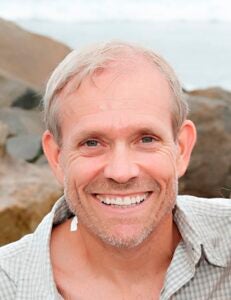 Dr. Hugh Safford is Chief Scientist for Vibrant Planet, an environmental public benefits corporation, and a member of the research faculty in the Department of Environmental Science and Policy at the University of California-Davis. Before joining Vibrant Planet, Safford was Regional Ecologist for the USDA-Forest Service’s Region 5 (California, Hawaii, Pacific territories) for more than two decades; he retired at the end of 2021. Vibrant Planet works at the interface between resource management, science, and technology, and applies Silicon Valley computer engineering and data management to complex environmental problems like forest resilience and wildfire mitigation in the western US and carbon sequestration, offsets, and REDD applications in the tropics. The Safford Lab at UC-Davis is focused on applied ecological support to resource and fire management in California and worldwide. Safford is director of the Sierra Nevada section of the California Fire Science Consortium, and he is PI of the California Prescribed Fire Monitoring Program (a partnership with CALFIRE), as well as the multipartner Southern California Montane Forest Conservation Strategy. Safford has provided international technical assistance on fire, forest management, and climate change issues since the 1990s. Recent projects include fire hazard and risk mapping in Georgia, fire management planning in Mexico, climate change adaptation in Brazil, and forest restoration in North Africa and the Levant. Safford was a fellow with the Fulbright Global Scholars Program between 2017 and 2019, where he studied post-fire ecosystem restoration practices in the Mediterranean Basin. Safford was co-editor of the 2021 Postfire Restoration Framework for National Forests in California, which provides guidance for management decision-making in burned ecosystems under changing environmental baselines. Safford was featured in the 2020 book Trees in Trouble by Daniel Matthews, as well as in a recent episode of the UK-based Conservation Careers podcast. Safford grew up in southwestern Montana, he has lived in California since 1986 and splits his time between Davis and the Lake Tahoe Basin. In his free time, Safford plays the piano, skis, climbs mountains, and gets hit periodically by lightning.
Dr. Hugh Safford is Chief Scientist for Vibrant Planet, an environmental public benefits corporation, and a member of the research faculty in the Department of Environmental Science and Policy at the University of California-Davis. Before joining Vibrant Planet, Safford was Regional Ecologist for the USDA-Forest Service’s Region 5 (California, Hawaii, Pacific territories) for more than two decades; he retired at the end of 2021. Vibrant Planet works at the interface between resource management, science, and technology, and applies Silicon Valley computer engineering and data management to complex environmental problems like forest resilience and wildfire mitigation in the western US and carbon sequestration, offsets, and REDD applications in the tropics. The Safford Lab at UC-Davis is focused on applied ecological support to resource and fire management in California and worldwide. Safford is director of the Sierra Nevada section of the California Fire Science Consortium, and he is PI of the California Prescribed Fire Monitoring Program (a partnership with CALFIRE), as well as the multipartner Southern California Montane Forest Conservation Strategy. Safford has provided international technical assistance on fire, forest management, and climate change issues since the 1990s. Recent projects include fire hazard and risk mapping in Georgia, fire management planning in Mexico, climate change adaptation in Brazil, and forest restoration in North Africa and the Levant. Safford was a fellow with the Fulbright Global Scholars Program between 2017 and 2019, where he studied post-fire ecosystem restoration practices in the Mediterranean Basin. Safford was co-editor of the 2021 Postfire Restoration Framework for National Forests in California, which provides guidance for management decision-making in burned ecosystems under changing environmental baselines. Safford was featured in the 2020 book Trees in Trouble by Daniel Matthews, as well as in a recent episode of the UK-based Conservation Careers podcast. Safford grew up in southwestern Montana, he has lived in California since 1986 and splits his time between Davis and the Lake Tahoe Basin. In his free time, Safford plays the piano, skis, climbs mountains, and gets hit periodically by lightning.
Students
Jonah Weeks | Doctoral Student | jsweeks@ucdavis.edu
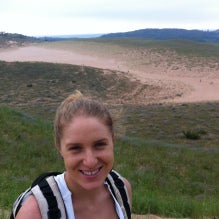 Jonah’s research is focused on restoration ecology, specifically, fire ecology in higher elevation forests such as those found in much of the Sierra Nevada mountain range. She is also interested in ecological education and outreach. Jonah’s thesis project involves a long term, ongoing, post-fire study assessing the area burned by the Angora Fire in South Lake Tahoe in 2007. The project began in 2008 and consists of Common Stand Exam plots and regeneration plots set up on a grid throughout the over 3,000 acres burned by the fire. She is studying effects of the fire on plant diversity, forest structure, fuels accumulation, and other variables. Jonah is a Davis native who received a BS in Environmental Science from Chico Sate University.
Jonah’s research is focused on restoration ecology, specifically, fire ecology in higher elevation forests such as those found in much of the Sierra Nevada mountain range. She is also interested in ecological education and outreach. Jonah’s thesis project involves a long term, ongoing, post-fire study assessing the area burned by the Angora Fire in South Lake Tahoe in 2007. The project began in 2008 and consists of Common Stand Exam plots and regeneration plots set up on a grid throughout the over 3,000 acres burned by the fire. She is studying effects of the fire on plant diversity, forest structure, fuels accumulation, and other variables. Jonah is a Davis native who received a BS in Environmental Science from Chico Sate University.
Sara Winsemius | Doctoral Student | swinsemius@ucdavis.edu
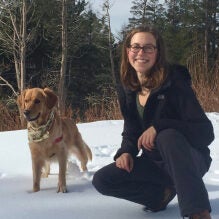 Sara is pursuing a PhD in Ecology, working with Drs. Yufang Jin and Hugh Safford. She is using remote sensing to study landscape-level changes and ecosystem response to disturbance in high elevation forests of the Sierra Nevada. She received a B.S. in Environmental Science from UC Berkeley in 2013. She has studied coastal dune restoration and most recently agroecology and native pollinator restoration.
Sara is pursuing a PhD in Ecology, working with Drs. Yufang Jin and Hugh Safford. She is using remote sensing to study landscape-level changes and ecosystem response to disturbance in high elevation forests of the Sierra Nevada. She received a B.S. in Environmental Science from UC Berkeley in 2013. She has studied coastal dune restoration and most recently agroecology and native pollinator restoration.
Ashley Grupenhoff | Doctoral Student | agrupenhoff@ucdavis.edu
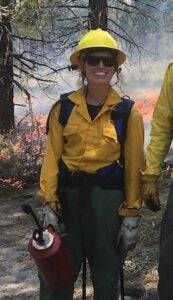 Ashley’s research is aimed at examining the consequences of altered disturbance regimes on species composition and ecosystem function. She is particularly interested in the effects of prescribed fire in shaping plant species, populations, and communities and is currently working with CalFire to implement a long-term monitoring program of prescribed fire in California. Before coming to Davis, she has conducted fieldwork across multiple taxa in Ecuador, American Samoa, and the western United States. Ashley obtained her BS in Biology at Virginia Commonwealth University.
Ashley’s research is aimed at examining the consequences of altered disturbance regimes on species composition and ecosystem function. She is particularly interested in the effects of prescribed fire in shaping plant species, populations, and communities and is currently working with CalFire to implement a long-term monitoring program of prescribed fire in California. Before coming to Davis, she has conducted fieldwork across multiple taxa in Ecuador, American Samoa, and the western United States. Ashley obtained her BS in Biology at Virginia Commonwealth University.
Gabriel (Gabe) Foote | Doctoral Student | gfoote@ucdavis.edu
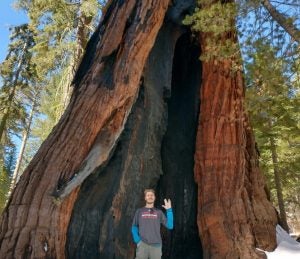 Gabe studies the landscape and stand-level factors that regulate the community assemblages and trophic interactions of insects (primarily bees and bark beetles) in coniferous forests of the southwestern United States. The objectives of his current research projects include: 1) determining how forest structure and disturbance influence bee and wasp diversity in the Californian Sierra Nevada, 2) developing slash management guidelines for reducing Ips confusus bark beetle populations in southwestern pinyon pine systems, and 3) monitoring the range expansion of an invasive bark beetle, Orthotomicus erosus, across western North America and into native pine forests. Gabe developed his skills in bee and bark beetle taxonomy while conducting his master’s thesis and post-graduate research at Oregon State University.
Gabe studies the landscape and stand-level factors that regulate the community assemblages and trophic interactions of insects (primarily bees and bark beetles) in coniferous forests of the southwestern United States. The objectives of his current research projects include: 1) determining how forest structure and disturbance influence bee and wasp diversity in the Californian Sierra Nevada, 2) developing slash management guidelines for reducing Ips confusus bark beetle populations in southwestern pinyon pine systems, and 3) monitoring the range expansion of an invasive bark beetle, Orthotomicus erosus, across western North America and into native pine forests. Gabe developed his skills in bee and bark beetle taxonomy while conducting his master’s thesis and post-graduate research at Oregon State University.
Marie Fleming | Doctoral Student | mariecfleming@ucdavis.edu
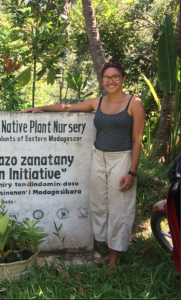 Marie is pursuing a PhD in Ecology, working with Dr. Hugh Safford and Dr. Beth Rose Middleton. Their multidisciplinary research aims to examine the social-ecological dimensions of natural resource use. They are particularly interested in the use of agroforestry and sustainable agroecological practices to restore degraded lands. Marie’s current research looks at the social, cultural, economic, and ecological factors that influence land use change in the forest and agroecosystems of the SAVA region of Madagascar. Marie lived in Madagascar during their Peace Corps service and worked on home gardens, maternal and child nutrition, youth environmental education, and helped establish a vanilla farmer’s cooperative. Marie obtained a B.A. from Pitzer College in Environmental Analysis with a minor in Africana Studies, and a master’s from Cornell University in International Agriculture and Rural Development as a Coverdell Fellow. During their master’s, Marie studied agroforestry-based gender-sensitive value chain development in Kenya as a part of the Cornell Dyson School of Applied Economics & Management multidisciplinary emerging markets research team.
Marie is pursuing a PhD in Ecology, working with Dr. Hugh Safford and Dr. Beth Rose Middleton. Their multidisciplinary research aims to examine the social-ecological dimensions of natural resource use. They are particularly interested in the use of agroforestry and sustainable agroecological practices to restore degraded lands. Marie’s current research looks at the social, cultural, economic, and ecological factors that influence land use change in the forest and agroecosystems of the SAVA region of Madagascar. Marie lived in Madagascar during their Peace Corps service and worked on home gardens, maternal and child nutrition, youth environmental education, and helped establish a vanilla farmer’s cooperative. Marie obtained a B.A. from Pitzer College in Environmental Analysis with a minor in Africana Studies, and a master’s from Cornell University in International Agriculture and Rural Development as a Coverdell Fellow. During their master’s, Marie studied agroforestry-based gender-sensitive value chain development in Kenya as a part of the Cornell Dyson School of Applied Economics & Management multidisciplinary emerging markets research team.
Tessa Putz | Doctoral Student | trputz@ucdavis.edu
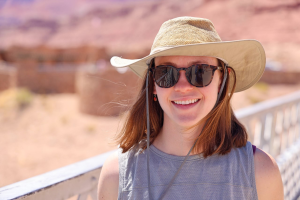 Tessa is broadly interested in the restoration of frequent-fire forests to reduce wildfire risk and increase resilience to climate change. Her research includes studying the effectiveness of prescribed fire in achieving these goals. She has degrees in environmental science, with a BS from University of Washington and a MS from University of Nevada, Reno. Her MS work involved studying variation of drought-resistant traits in sky island populations of ponderosa pine in the Great Basin. In her most recent position at UNR Extension, she was involved in collaborative science communication projects, including work with the Living With Fire Program. This experience, along with years of working for several natural resources agencies and universities across the West, has fostered her desire to produce and advocate for actionable science.
Tessa is broadly interested in the restoration of frequent-fire forests to reduce wildfire risk and increase resilience to climate change. Her research includes studying the effectiveness of prescribed fire in achieving these goals. She has degrees in environmental science, with a BS from University of Washington and a MS from University of Nevada, Reno. Her MS work involved studying variation of drought-resistant traits in sky island populations of ponderosa pine in the Great Basin. In her most recent position at UNR Extension, she was involved in collaborative science communication projects, including work with the Living With Fire Program. This experience, along with years of working for several natural resources agencies and universities across the West, has fostered her desire to produce and advocate for actionable science.
Saba Saberi | Doctoral Student | sjsaberi@ucdavis.edu
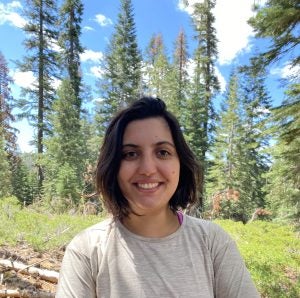 Saba is interested in understanding how forests respond to a changing climate and fire regimes. She is particularly interested in regeneration trajectories along a gradient of burn severity in the Sierra Nevada. More broadly, she is interested in effective science communication and stakeholder engagement in science. Saba obtained her BS in Environmental Science from UC Berkeley, and her MS in Environmental and Forest Science from the University of Washington. Her research there focused on improving models used to quantify burn severity throughout the Interior Pacific Northwest by integrating intensive field measurements and satellite remote sensing indices. Before joining the GGE, she worked as a research scientist at the UW where she assessed forest structural change using digital aerial photogrammetry and lidar.
Saba is interested in understanding how forests respond to a changing climate and fire regimes. She is particularly interested in regeneration trajectories along a gradient of burn severity in the Sierra Nevada. More broadly, she is interested in effective science communication and stakeholder engagement in science. Saba obtained her BS in Environmental Science from UC Berkeley, and her MS in Environmental and Forest Science from the University of Washington. Her research there focused on improving models used to quantify burn severity throughout the Interior Pacific Northwest by integrating intensive field measurements and satellite remote sensing indices. Before joining the GGE, she worked as a research scientist at the UW where she assessed forest structural change using digital aerial photogrammetry and lidar.
Postdoctoral Scholars and Staff Researchers
Rut Domenech, PhD | Postdoctoral Scholar | rutdomenech@ucdavis.edu
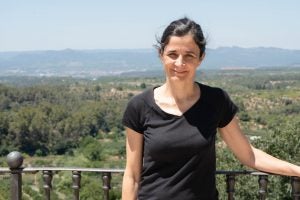 Rut Domenech is a research ecologist at Safford’s lab, at the University of California, in Davis. She is the technical responsible for the California Prescribed Fire Monitoring Program (CPFMP), a joint effort between UC-Davis and Cal Fire to assess and inform on prescribed fires best practices to achieve ecological benefits and mitigate extreme wildfire. She has spent her research career in Spain assessing forest effects under different types of fire regimes and prescribed fire as well as in Scotland understanding heather fire regimes. She has also focused on mosaic dynamics and social management for rural areas to improve landscape resilience and adaptation to climate change. She holds a PhD in Pinus halepensis fuel types management from the Universitat Politècnica of Catalonia (Spain).
Rut Domenech is a research ecologist at Safford’s lab, at the University of California, in Davis. She is the technical responsible for the California Prescribed Fire Monitoring Program (CPFMP), a joint effort between UC-Davis and Cal Fire to assess and inform on prescribed fires best practices to achieve ecological benefits and mitigate extreme wildfire. She has spent her research career in Spain assessing forest effects under different types of fire regimes and prescribed fire as well as in Scotland understanding heather fire regimes. She has also focused on mosaic dynamics and social management for rural areas to improve landscape resilience and adaptation to climate change. She holds a PhD in Pinus halepensis fuel types management from the Universitat Politècnica of Catalonia (Spain).
Andrea Duane, PhD | Postdoctoral Scholar | anduane@ucdavis.edu
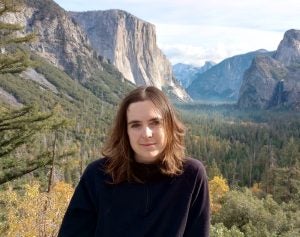 Andrea Duane is a fire ecologist studying wildfire dynamics and its associated impacts on ecosystems. She completed her PhD at the Autonomous University of Barcelona where she contributed to the disclosure of the relationship between fires, vegetation and climate working at the landscape scale and with a focus on Mediterranean ecosystems. After her PhD, she completed four years of postdoc research at the Forest Science Center of Catalonia and the University of Lleida looking for the factors that explain extreme wildfire events around the world. Currently, she is a postdoc in Safford’s lab at UC Davis, and her research is centered on historical fire regimes in California, with a focus on pre-European settlement burnt area and emissions estimations. Her research is devoted to having an impact on current ecosystem and forest management, by providing sound and novel evidence of ecosystem dynamics and quantifying current practice impacts on fire management goals.
Andrea Duane is a fire ecologist studying wildfire dynamics and its associated impacts on ecosystems. She completed her PhD at the Autonomous University of Barcelona where she contributed to the disclosure of the relationship between fires, vegetation and climate working at the landscape scale and with a focus on Mediterranean ecosystems. After her PhD, she completed four years of postdoc research at the Forest Science Center of Catalonia and the University of Lleida looking for the factors that explain extreme wildfire events around the world. Currently, she is a postdoc in Safford’s lab at UC Davis, and her research is centered on historical fire regimes in California, with a focus on pre-European settlement burnt area and emissions estimations. Her research is devoted to having an impact on current ecosystem and forest management, by providing sound and novel evidence of ecosystem dynamics and quantifying current practice impacts on fire management goals.
Quinn Sorenson, PhD | Postdoctoral Scholar | qmsorenson@ucdavis.edu
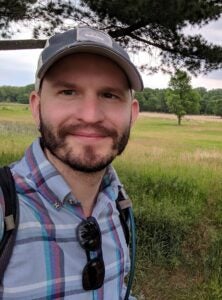 Quinn Sorenson is a plant community and restoration ecologist focusing on forests, chaparral, savannas, and grasslands. Currently, his research is centered on postfire forest recovery and impacts of drought mortality in the Sierra Nevada. By investigating the biotic and abiotic mechanisms controlling plant establishment and growth, his research focuses on developing new techniques and tools for land managers to increase restoration success and reduce costs. He completed his Ph.D. at the University of Wisconsin–Madison, where he studied the restoration of longleaf pine savannas after centuries of fire suppression and agricultural land use. Prior to his dissertation work, he spent five years at the Irvine Ranch Conservancy testing cost-effective techniques for restoring coastal sage scrub and California grasslands at large scales.
Quinn Sorenson is a plant community and restoration ecologist focusing on forests, chaparral, savannas, and grasslands. Currently, his research is centered on postfire forest recovery and impacts of drought mortality in the Sierra Nevada. By investigating the biotic and abiotic mechanisms controlling plant establishment and growth, his research focuses on developing new techniques and tools for land managers to increase restoration success and reduce costs. He completed his Ph.D. at the University of Wisconsin–Madison, where he studied the restoration of longleaf pine savannas after centuries of fire suppression and agricultural land use. Prior to his dissertation work, he spent five years at the Irvine Ranch Conservancy testing cost-effective techniques for restoring coastal sage scrub and California grasslands at large scales.
Oscar Garcia Companys, MS | Research Assistant | osgarcia@ucdavis.edu
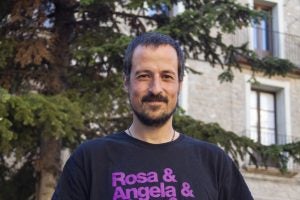
Oscar is a forester and research assistant in Dr. Hugh Safford’s lab at UC Davis. Currently, he is working on the “Scaling Science-Driven Vegetation Treatments for a Wildfire Resilient California” project, spearheaded by UC San Diego. This initiative is dedicated to developing cutting-edge tools that enhance the planning and execution of prescribed fires across California. Oscar‘s role in the project involves the integration of terrestrial Lidar technology into the California prescribed burning monitoring program. His focus lies in the development of highly accurate 3D fuel models, for effective prescribed burn planning and execution. Prior this project, Oscar worked in planning, inventory, and forest harvesting in the Mediterranean forest ecosystems of Catalonia (Spain). His journey commenced at the Forestry Science Center of Catalonia, where he worked in forestry planning and monitoring. Later, he brought his experience to the Solsones Forestry School in Catalunya. Currenly he is on leave from a forester permanent position in the Catalonian Forest Service.
Melanie Schlueter, BS | Junior Specialist | mschlueter@ucdavis.edu
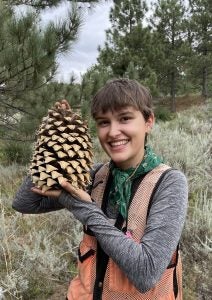 Over the past years Melanie has worked in various conservation and research projects worldwide. Early 2023, she finished her BS in ‘International Forest Ecosystem Management’ at the University for Sustainable Development in Germany. Apart from German silviculture, nature conservation and global forest disturbances driven by climate change were some of the main topics of her studies. With the Junior Specialist position in the Safford Lab, Melanie is starting off her career and wants to gain more experience in the field of fire ecology. She is very interested in learning how to use fire as a management tool within silvicultural systems and to promote resilience within.
Over the past years Melanie has worked in various conservation and research projects worldwide. Early 2023, she finished her BS in ‘International Forest Ecosystem Management’ at the University for Sustainable Development in Germany. Apart from German silviculture, nature conservation and global forest disturbances driven by climate change were some of the main topics of her studies. With the Junior Specialist position in the Safford Lab, Melanie is starting off her career and wants to gain more experience in the field of fire ecology. She is very interested in learning how to use fire as a management tool within silvicultural systems and to promote resilience within.
Emma Underwood, PhD | Research Scientist | eunderwoodrussell@ucdavis.edu
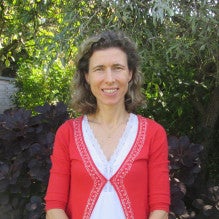 Emma Underwood is a research scientist in Environmental Science and Policy at the University of California, Davis. A central theme of her research is the application of geospatial tools and remote sensing techniques to address biodiversity and conservation issues and inform environmental decisions. Her research interests include conservation assessments of biodiversity, estimating conservation return on investment, evaluating ecosystem services, and mapping and predicting the distribution of invasive plant species. During the past 15 years Emma’s research has spanned multiple spatial scales from sites to ecoregions and has focused on a variety of ecosystems including tropical forests in central Africa, Mediterranean-type habitats globally, the central coast and Sierra Nevada of California, and the Mojave Desert. Prior to UC Davis, she worked for the World Wildlife Fund-US and since then has undertaken collaborative research with The Nature Conservancy, the US Geological Survey, and the US Forest Service. Emma received her Ph.D. in Ecology from the University of California, Davis.
Emma Underwood is a research scientist in Environmental Science and Policy at the University of California, Davis. A central theme of her research is the application of geospatial tools and remote sensing techniques to address biodiversity and conservation issues and inform environmental decisions. Her research interests include conservation assessments of biodiversity, estimating conservation return on investment, evaluating ecosystem services, and mapping and predicting the distribution of invasive plant species. During the past 15 years Emma’s research has spanned multiple spatial scales from sites to ecoregions and has focused on a variety of ecosystems including tropical forests in central Africa, Mediterranean-type habitats globally, the central coast and Sierra Nevada of California, and the Mojave Desert. Prior to UC Davis, she worked for the World Wildlife Fund-US and since then has undertaken collaborative research with The Nature Conservancy, the US Geological Survey, and the US Forest Service. Emma received her Ph.D. in Ecology from the University of California, Davis.
Rebecca Wayman, MS | Specialist | rbwayman@ucdavis.edu
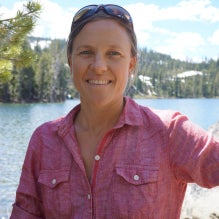 Rebecca is a Specialist in the lab of Dr. Hugh Safford at UC Davis. Her research focuses on effects and drivers of forest disturbances such as wildfire and bark beetle-induced tree mortality, and ecological impacts of forest management practices. She also serves as a liaison between the Safford Lab and the 10 California-based US Forest Service Ecologists, with the goal of enhancing collaboration and communication between our lab’s applied scientists and resource managers. Rebecca served as co-chair of the October 2016 Natural Areas Conference – “Climate Change Adaptation and Natural Areas Management: Turning Words into Action” and the 2018 symposium titled “Living with Fire in California’s Coast Ranges”. Prior to joining the Safford lab in 2015, Rebecca worked for nine years as a Senior Biologist with a small environmental consulting firm specializing in preserve land establishment and stewardship and natural resource assessment.
Rebecca is a Specialist in the lab of Dr. Hugh Safford at UC Davis. Her research focuses on effects and drivers of forest disturbances such as wildfire and bark beetle-induced tree mortality, and ecological impacts of forest management practices. She also serves as a liaison between the Safford Lab and the 10 California-based US Forest Service Ecologists, with the goal of enhancing collaboration and communication between our lab’s applied scientists and resource managers. Rebecca served as co-chair of the October 2016 Natural Areas Conference – “Climate Change Adaptation and Natural Areas Management: Turning Words into Action” and the 2018 symposium titled “Living with Fire in California’s Coast Ranges”. Prior to joining the Safford lab in 2015, Rebecca worked for nine years as a Senior Biologist with a small environmental consulting firm specializing in preserve land establishment and stewardship and natural resource assessment.
John Williams, Ph.D. | Project Scientist | jnwill@ucdavis.edu
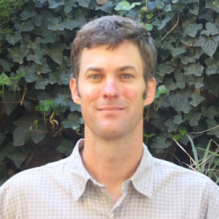 John Williams is an ecologist and project scientist in the Safford lab where he studies the effects of natural and prescribed fire on forest ecosystems. John coordinates the California prescribed burn monitoring program, a joint effort between UC-Davis and Cal Fire. He is also interested in the nexus of humans and natural systems, where his research examines topics related to climate change, species distributions, biodiversity conservation and the interface between agriculture and natural habitat.
John Williams is an ecologist and project scientist in the Safford lab where he studies the effects of natural and prescribed fire on forest ecosystems. John coordinates the California prescribed burn monitoring program, a joint effort between UC-Davis and Cal Fire. He is also interested in the nexus of humans and natural systems, where his research examines topics related to climate change, species distributions, biodiversity conservation and the interface between agriculture and natural habitat.
Lab Alumni
Tara Ursell, PhD | tursell@unr.edu
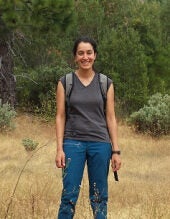 Tara Ursell is an ecologist focused on post-wildfire forest recovery — particularly on how ecological dynamics and land management practices influence long-term recovery trajectories. She completed a PhD in Ecology in 2022 and an MS in Agricultural and Resource Economics in 2020. Her dissertation focused on tree-shrub interactions in reforested Forest Service lands as well as snag dynamics in recently burned areas. Tara is currently a Research Assistant Professor at the University of Nevada-Reno, where she continues this line of research and also works on fire science outreach as the Sierra Nevada Coordinator for the California Fire Science Consortium.
Tara Ursell is an ecologist focused on post-wildfire forest recovery — particularly on how ecological dynamics and land management practices influence long-term recovery trajectories. She completed a PhD in Ecology in 2022 and an MS in Agricultural and Resource Economics in 2020. Her dissertation focused on tree-shrub interactions in reforested Forest Service lands as well as snag dynamics in recently burned areas. Tara is currently a Research Assistant Professor at the University of Nevada-Reno, where she continues this line of research and also works on fire science outreach as the Sierra Nevada Coordinator for the California Fire Science Consortium.
Emily Brodie, PhD | egbrodie@ucdavis.edu
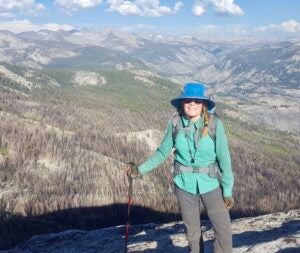
Emily is interested in how landscape level drivers like fire and productivity influence plant community diversity and composition as well as regenerating forests. Her work takes place primarily in California subalpine systems. Emily hails from Washington state and graduated from Western Washington University in 2013 with a BS in Biology and a BA in Spanish. In the years post-undergrad and pre-grad school she integrated her passion for Spanish language and cultures with her interest in biodiversity and botany on three continents. Starting in Panama at the Smithsonian Tropical Research institute, she studied how mating behaviors in tropical butterflies lead to sexual isolation and speciation. She then completed a Fulbright fellowship in Madrid, Spain, where she used primary source notes and diaries at the Royal Botanic Garden to map vouchers collected by Alexander von Humboldt in Peru. Despite her travels, Emily’s heart resides in the western United States where she has spent 7 field seasons working as a botanist for state and federal agencies.
Alison (Ali) Paulson, PhD | Postdoctoral Scholar | akpaulson@ucdavis.edu
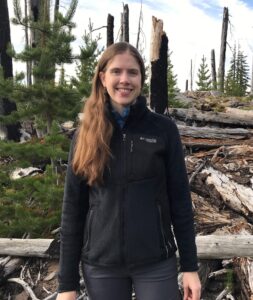
Ali Paulson is a forest ecologist and botanist interested in how changing disturbance regimes impact forest ecosystems. Her current research focuses on how forest management and previous wildfire activity impact fire severity and behavior, and on developing tools that managers can use to implement more prescribed fire. Ali is also the coordinator for the Sierra Nevada Region of the California Fire Science Consortium. Ali’s past research focused on post-fire regeneration and understory plant community composition in Siberian larch forests (with Mississippi State University), and long-term drivers of change in diversity and composition of plant communities in the Great Lakes Region of the United States (with the University of Wisconsin-Madison and the National Park Service). Ali is excited to continue working in translational ecology by conducting research at the nexus of science and management.
Zack Steel, PhD | Postdoctoral Scholar | zlsteel@berkeley.edu
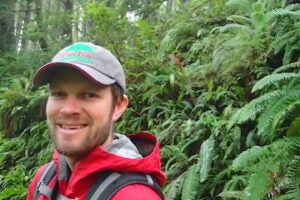 Zack is a postdoctoral researcher at UCD and Berkeley. Through his research he seeks to improve our understanding of how acute (e.g. wildfire & drought) and chronic (e.g. climate) environmental stressors structure ecological communities, how landscape pattern mediates environmental drivers, and how anthropogenic change at local to global scales directly or indirectly alters community dynamics and species distributions. His post-doctoral research assesses impacts of extreme drought on Sierran conifer forests, informs reforestation prioritization within areas of high tree mortality, and investigates the ecological consequences and patterns of managed wildfire in Yosemite and Kings Canyon National Parks. His dissertation research focused on how wildfire and forest management alters landscape pattern, and influences habitat use of birds and bats in the forests of California’s Sierra Nevada Mountains.
Zack is a postdoctoral researcher at UCD and Berkeley. Through his research he seeks to improve our understanding of how acute (e.g. wildfire & drought) and chronic (e.g. climate) environmental stressors structure ecological communities, how landscape pattern mediates environmental drivers, and how anthropogenic change at local to global scales directly or indirectly alters community dynamics and species distributions. His post-doctoral research assesses impacts of extreme drought on Sierran conifer forests, informs reforestation prioritization within areas of high tree mortality, and investigates the ecological consequences and patterns of managed wildfire in Yosemite and Kings Canyon National Parks. His dissertation research focused on how wildfire and forest management alters landscape pattern, and influences habitat use of birds and bats in the forests of California’s Sierra Nevada Mountains.
Carrie Levine, PhD | Postdoctoral Scholar | crlevine@ucdavis.edu
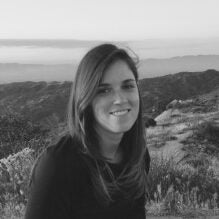
Carrie Levine is a forest ecologist whose research is based in the Sierra Nevada mixed-conifer forests of California. Over the last century, these forests have experienced altered fire regimes, timber harvesting, a warming climate, chronic air pollution, and uncharacteristically severe attacks by pests and pathogens, resulting in a shift towards a low-diversity forest system. Carrie works across temporal scales to incorporate historical and contemporary datasets into models that can help predict future ecological conditions under changing climate regimes. Carrie’s research is focused on applying concepts of ecological resilience in management, restoration, and conservation contexts in order to bridge the gap between theory and practice. In 2017, Carrie completed her PhD at the University of California, Berkeley in the Department of Environmental Science, Policy, and Management and is now a postdoctoral scholar in the Safford Lab.
Clark Richter | Doctoral Student | cjrichter@ucdavis.edu
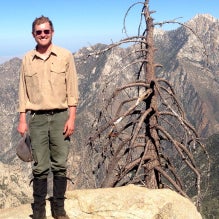 Clark’s research concerns how the post-disturbance environment influences understory plant communities. His current work focuses on how understory plant diversity varies across the spectrum of fire severity classes and in response to interactions with Ceanothus and other ecological features associated with the post-fire environment of mixed-conifer forests in the Sierra Nevada. His work also seeks to examine Ceanothus response to wildfire severity through functional trait variation. Clark served as a Peace Corps volunteer in the Philippines and assisted fishing communities with coastal resource management as well as organized college students to teach environmental stewardship and climate change awareness in elementary schools. His Master’s research at Sonoma State University focused on plant-plant interactions and plant functional trait response to large mammal (tule elk) herbivory in coastal prairie grasslands.
Clark’s research concerns how the post-disturbance environment influences understory plant communities. His current work focuses on how understory plant diversity varies across the spectrum of fire severity classes and in response to interactions with Ceanothus and other ecological features associated with the post-fire environment of mixed-conifer forests in the Sierra Nevada. His work also seeks to examine Ceanothus response to wildfire severity through functional trait variation. Clark served as a Peace Corps volunteer in the Philippines and assisted fishing communities with coastal resource management as well as organized college students to teach environmental stewardship and climate change awareness in elementary schools. His Master’s research at Sonoma State University focused on plant-plant interactions and plant functional trait response to large mammal (tule elk) herbivory in coastal prairie grasslands.
Mark E. De Guzman, PhD | Postdoctoral Scholar | medeguzman@ucdavis.edu
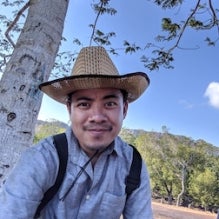 Mark De Guzman is an ecologist whose research interest is in carbon and water dynamics of woody plant responses to environmental conditions. His research interests led him to work in both arid and tropical ecosystems contributing insights on diverse drought hydraulic strategies and functional traits of plants in both natural and agricultural systems. Mark’s interest in the interface between academia and environmental regulation brings him from the Oregon Department of Agriculture to UC Davis as a postdoctoral scholar in the Safford lab to study the carbon dynamics of chaparral shrublands in Southern California under the framework of ecosystem services evaluation.
Mark De Guzman is an ecologist whose research interest is in carbon and water dynamics of woody plant responses to environmental conditions. His research interests led him to work in both arid and tropical ecosystems contributing insights on diverse drought hydraulic strategies and functional traits of plants in both natural and agricultural systems. Mark’s interest in the interface between academia and environmental regulation brings him from the Oregon Department of Agriculture to UC Davis as a postdoctoral scholar in the Safford lab to study the carbon dynamics of chaparral shrublands in Southern California under the framework of ecosystem services evaluation.
Jesse Miller, PhD | Postdoctoral Scholar | jedmiller@ucdavis.edu
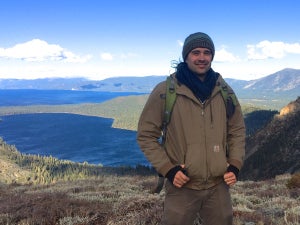 Jesse E. D. Miller is an ecologist with research interests at the confluence of community ecology, landscape ecology and restoration ecology. He is currently studying the effects of fire severity on plant and lichen communities in the Sierra Nevada. Jesse completed his Ph.D. at the University of Wisconsin-Madison, where he studied the influence of habitat connectivity and fire history on herbaceous plant diversity and long-term landscape change in Ozark grasslands. Prior to graduate school, Jesse worked as a botanist for government agencies, academic researchers, and private contractors in a number of ecosystems across Oregon and California. Jesse is certified in lichenology by the Northwest Lichenologists. Jesse works at the intersection of basic and applied ecology. He loves teaching botany and ecology, and he is particularly interested communicating research findings with land managers and the general public.
Jesse E. D. Miller is an ecologist with research interests at the confluence of community ecology, landscape ecology and restoration ecology. He is currently studying the effects of fire severity on plant and lichen communities in the Sierra Nevada. Jesse completed his Ph.D. at the University of Wisconsin-Madison, where he studied the influence of habitat connectivity and fire history on herbaceous plant diversity and long-term landscape change in Ozark grasslands. Prior to graduate school, Jesse worked as a botanist for government agencies, academic researchers, and private contractors in a number of ecosystems across Oregon and California. Jesse is certified in lichenology by the Northwest Lichenologists. Jesse works at the intersection of basic and applied ecology. He loves teaching botany and ecology, and he is particularly interested communicating research findings with land managers and the general public.
Christina Restaino, PhD | Postdoctoral Scholar, 2014-2017 | restainoc@unr.edu

Christina Restaino is a forest ecologist who studies the impacts of drought, fire and climate change on forest ecosystems. She is currently employed by the University of Nevada-Reno as an extension specialist in forestry. Her work is currently focused on how forest thinning can be used to increase resistance and resilience to drought and fire in the Sierra Nevada mountains. Christina’s research has focused on climate-growth relationships and forest productivity across western US forests, fire regime departures from historical conditions, forest regeneration after disturbance (bark-beetle mortality and fire), and how changing climate teleconnections can alter tree growth. Christina also worked as the Coordinator for the Sierra Nevada Region of the California Fire Science Consortium where she promoted the conduit of information between land managers and scientists to find solutions to pressing resource management questions in the region.
Lorie Srivastava, PhD | Postdoctoral Scholar | lsrivastava@ucdavis.edu
 Lorie Srivastava has a Ph.D. in Environmental and Natural Resource Economics, from Michigan State University. She also has a M.A. in Economics, a M.Sc. in Agricultural Economics, a B.A. in Economics, and a B.C.Sc. (Honours) in Computer Science. After completing her Computer Science degree, Lorie designed and developed e-courseware covering financial topics for small/medium businesses. For her Master’s degree in Agricultural Economics, she conducted primary research in the Middle Mountains of Nepal, examining and modelling farmers’ choices to grow vegetable cash crops for nearby markets. After completing her Ph.D., Lorie worked as a non-partisan researcher for Parliament of Canada, has worked in academia, private sector, government, and public agencies. Lorie is keenly interested in estimating the economic value of natural assets, such as water sources and forests and how they are affected by climate change. She would like to leverage her computer skills and apply virtual reality and artificial intelligence technologies in assessing people’s preferences and the economic values they place on market and non-market goods and services – i.e. goods and services such as clean air that are not traded in regular markets. Lorie has returned to academia and is currently a Post-Doctoral Fellow at UC Davis; in this capacity, she is estimating the economic value of various ecosystem services – water, air quality, sediment retention, and sequestered carbon – generated by the National Forests in southern California, and how climate change will affect these values. These areas are dominated by chaparral, prone to wildfires, and drought. Lorie is Canadian, splitting her time between Davis, CA and Vancouver, BC.
Lorie Srivastava has a Ph.D. in Environmental and Natural Resource Economics, from Michigan State University. She also has a M.A. in Economics, a M.Sc. in Agricultural Economics, a B.A. in Economics, and a B.C.Sc. (Honours) in Computer Science. After completing her Computer Science degree, Lorie designed and developed e-courseware covering financial topics for small/medium businesses. For her Master’s degree in Agricultural Economics, she conducted primary research in the Middle Mountains of Nepal, examining and modelling farmers’ choices to grow vegetable cash crops for nearby markets. After completing her Ph.D., Lorie worked as a non-partisan researcher for Parliament of Canada, has worked in academia, private sector, government, and public agencies. Lorie is keenly interested in estimating the economic value of natural assets, such as water sources and forests and how they are affected by climate change. She would like to leverage her computer skills and apply virtual reality and artificial intelligence technologies in assessing people’s preferences and the economic values they place on market and non-market goods and services – i.e. goods and services such as clean air that are not traded in regular markets. Lorie has returned to academia and is currently a Post-Doctoral Fellow at UC Davis; in this capacity, she is estimating the economic value of various ecosystem services – water, air quality, sediment retention, and sequestered carbon – generated by the National Forests in southern California, and how climate change will affect these values. These areas are dominated by chaparral, prone to wildfires, and drought. Lorie is Canadian, splitting her time between Davis, CA and Vancouver, BC.